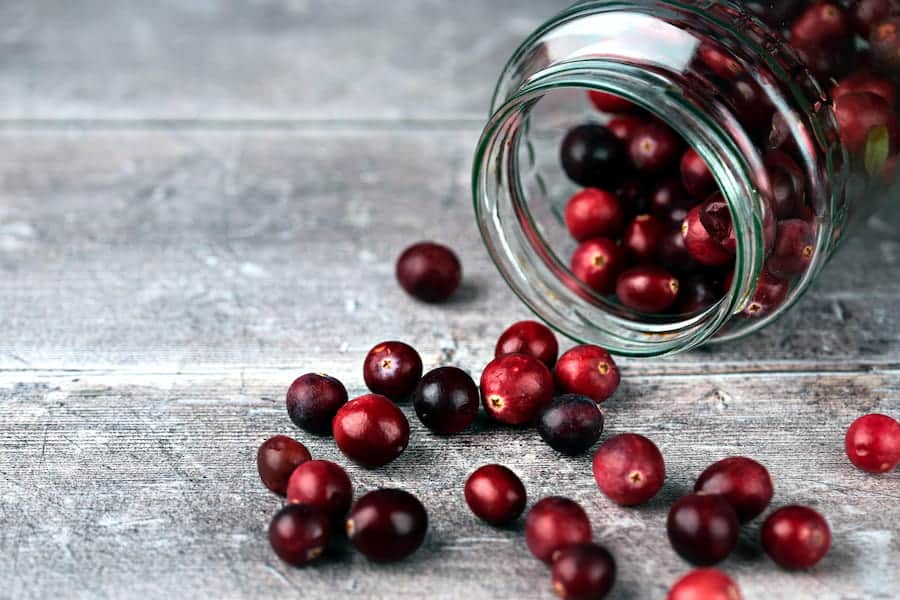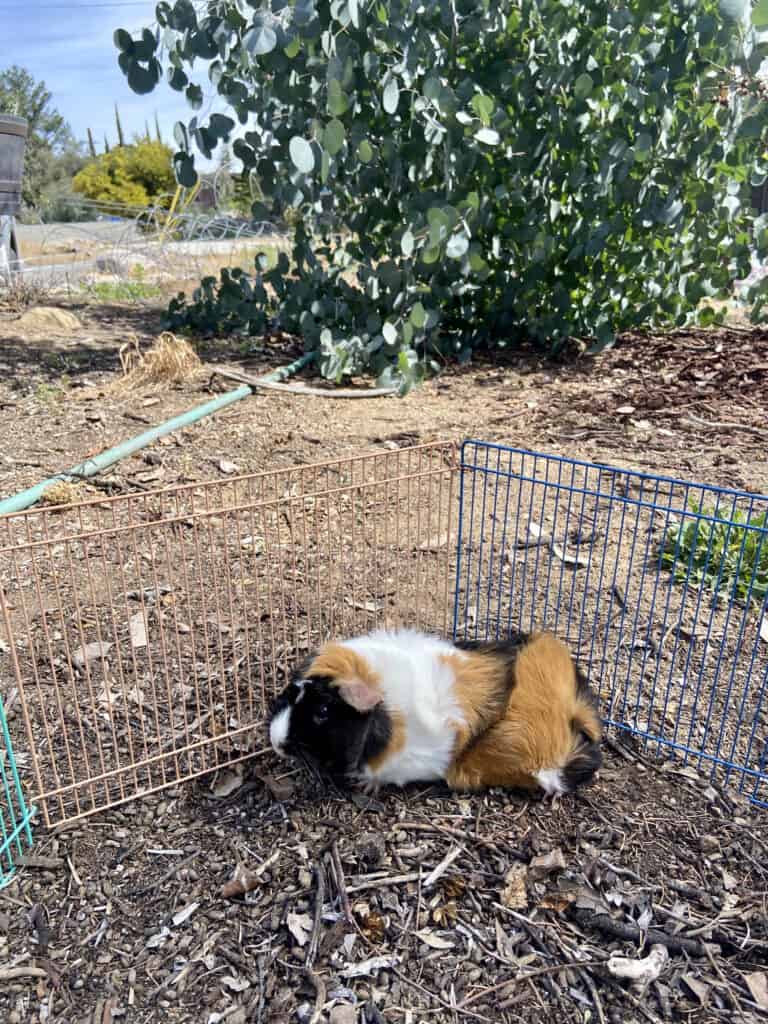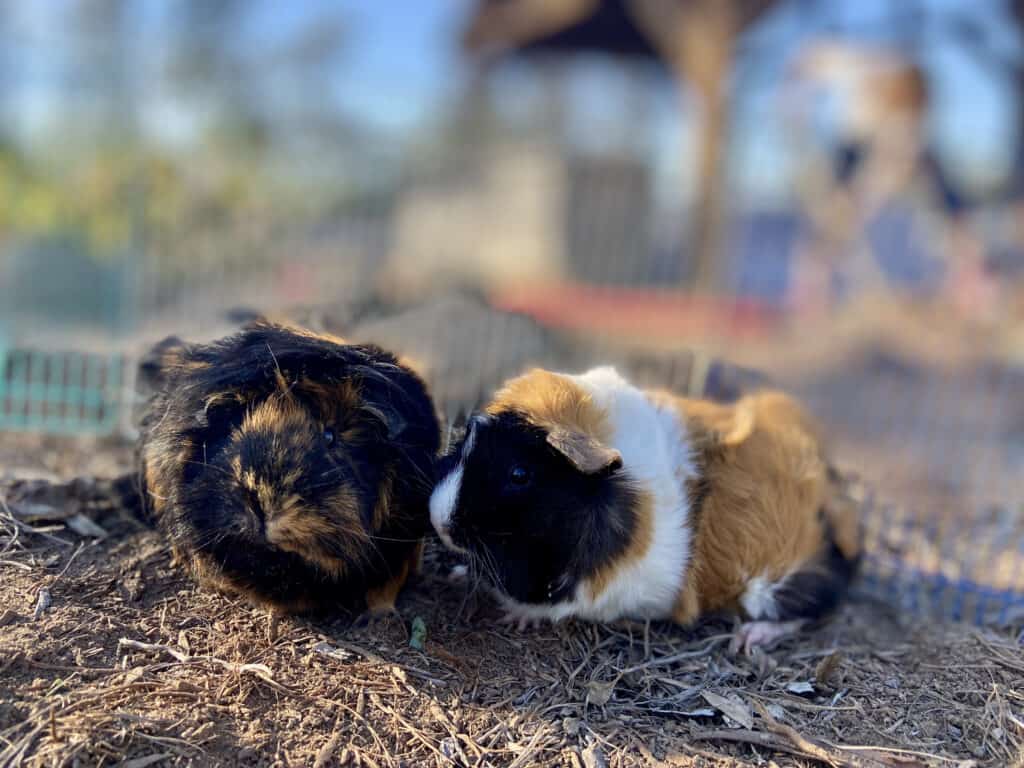As an Amazon Associate we earn from qualifying purchases.
Can you imagine a guinea pig nibbling small fruits, cute right? Well, people should be careful in feeding them because their bodies are as fragile as they look. Often, people ask what kind of fruits guinea pigs can eat.
Since they are small, most people think that it is safe for them to eat small fruits like berries, particularly cranberries. Can guinea pigs eat cranberries? Here is the answer you have been searching for!
Can Guinea Pigs Eat Cranberries?
Yes, guinea pigs can eat cranberries. Despite the misconceptions about them being allergic to cranberries, this delicious fruit is safe for them to enjoy. Moreover, cranberries can provide a variety of vitamins and minerals that are good for guinea pigs’ health.

Cranberries, like other fruits in the berry family, are full of important vitamins, minerals, and nutrients that can help guinea pigs to be healthier and stronger against various diseases. In fact, incorporating cranberries to guinea pigs diet will diversify the nutrients that their body needs for a better lifestyle and immunity.
Health Benefits in Cranberries
Cranberries are known as one of the most famous fruits that people usually incorporate in desserts. However, this fruit is not just an eye candy for sweets but also an amazing source of nutrients, not just for humans but for guinea pigs as well.
The health benefits in eating cranberries are what guinea pigs need in order to have a well-balanced diet. Here are some of the benefits guinea pigs can get in cranberries:
- Cranberries can help in getting rid of bacteria and infection lingering in guinea pigs’ urinary walls. This will prevent urinary problems which are fatal for them.
- Cranberries can hydrate guinea pigs because of its water content. Proper hydration for guinea pigs is necessary to avoid kidney failures.
- Cranberries are known for its antioxidant, an amazing nutrient that fights against cancers and other severe diseases.
- Cranberries help prevent heart problems for guinea pigs.
- Cranberries have proanthocyanidins which prevent the form of bacteria in guinea pigs’ teeth and promote better dental health.
- Cranberries promote better digestion and gut work for guinea pigs.
- Cranberries contain fiber which helps with digestion and prevents diseases such as obesity, diabetes, and diarrhea.
- Cranberries are rich in vitamin C, a nutrient that is important for guinea pigs in order to have strong immunity against diseases. It is known that guinea pigs cannot produce vitamin C which is why it is vital to include vitamin C in their diet.
However, it is still necessary to be careful in feeding guinea pigs cranberries mainly because it can also have drastic negative effects on their health. Proper knowledge and understanding about the cranberries’ possible health risks to guinea pigs are important in order to protect them from unnecessary accidents and diseases.
Cranberry Feeding Health Risks and Problems
Cranberries offer a long list of health benefits that can be tempting for people who want their guinea pigs to be healthier and stronger. However, lack of information and knowledge about the risks that cranberries have to guinea pigs can inflict more damage than help for them.
From the numerous health problems and diseases up to the do’s and don’ts of cranberry feeding, people should understand the difference between the pros and the cons of feeding cranberries to guinea pigs before actually adding it to their diet. It is also highly advisable to read and research about the fruits and vegetables before feeding them to guinea pigs because most foods can be harmful and poisonous to them.

Health Risks and Problems From Eating Cranberries
Despite offering various health benefits that are necessary for guinea pigs, cranberries can also expose them to a number of health risks and problems that can be fatal for them. These problems are caused by the same vitamins and nutrients that are meant to help them attain good health.
Like humans, too much vitamins and mineral intake can throw off guinea pigs’ body systems. Their bodies are not designed to consume high amounts of nutrients due to their small bodies and fragile organs. Guinea pigs have delicate stomachs which cannot fully digest high amounts of sugar, carbohydrates, and water.
These nutrients can be found in cranberries. Too much cranberries can cause digestive problems like indigestion, stomach aches, and diarrhea. Moreover, they can also suffer from fatal diseases like obesity, diabetes, kidney stones, as well as urinary problems.
Things to Consider Before Cranberry Feeding
Food preparation for guinea pigs varies depending on the kind of fruits and vegetables that you want to offer them. For instance, guinea pigs can eat mangoes, but they cannot eat its skin and seed because they are choking hazards for pocket animals like them. There are also safety reminders in feeding cranberries to guinea pigs. Here are some of them:
- Cranberries can be offered along with their skin. This is because cranberries’ skin is thin and supple compared to other fruits. Moreover, cranberry juice is also safe for guinea pigs to drink.
- Cranberry sauce, jam, and jelly are not safe for guinea pigs. This is due to the high amount of sugar that these processed cranberries have. Moreover, guinea pigs should not eat processed food that are specifically designed for human consumption.
- Cut the cranberries into small, bite-sized amounts for guinea pigs to avoid accidents while eating cranberries. Guinea pigs are known to nibble and chew their food, and they can accidentally choke on big portions of fruits.
- Supervise guinea pigs in eating fruits and vegetables. You will never know when accidents would occur especially if it is their first time eating cranberries. Other guinea pigs might turn away in cranberries and it is absolutely fine.
- Make sure to get unfinished cranberries after 4-6 hours. Usually, fruits that are left unattended for a long time can upset guinea pigs’ stomachs if consumed. This goes for vegetables as well.
Proper Cranberry Feeding
While the health risks and problems that cranberries impose to guinea pigs might sound intimidating and dangerous, they can be easily prevented. Most of the time, these problems only manifest if they are fed in high amounts of cranberries. Feeding them the right amount does not only ensure that they will not suffer the risks but also enjoy the benefits that cranberries contain.
It is advisable to only feed cranberries twice or thrice a week. In addition, limit its amount with only 1-2 small portions. Of course, mixing cranberries together with other fruits and vegetables are necessary to have a more balanced diet. Lastly, offer guinea pigs unlimited amounts of hay and grass that are packed in fiber for healthy digestion.

Related Questions
How Many Cranberries Can a Guinea Pig eat?
While cranberries may look small in size, they are big enough for guinea pigs. With this, 1-2 small cranberries should be enough for them. It is also advisable to feed them in small amounts to prevent indigestion and stomach aches.
Can Guinea Pigs eat Dehydrated Cranberries?
No, guinea pigs cannot eat dehydrated cranberries. This is because processed cranberry products such as dehydrated ones have high sugar content. It is too sweet for guinea pigs to eat.
Conclusion
Guinea pigs can eat cranberries. Moreover, these fruits contain a large variety of vitamins and minerals that is important in improving guinea pigs’ health. However, there are also numerous health risks and problems that should be considered before feeding cranberries to guinea pigs. Luckily, these risks can be easily avoided through moderate and controlled feeding as well as proper feeding supervision.